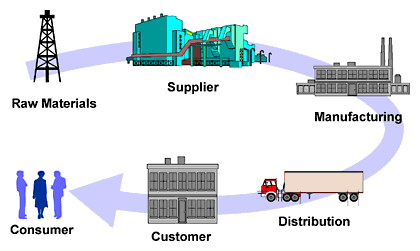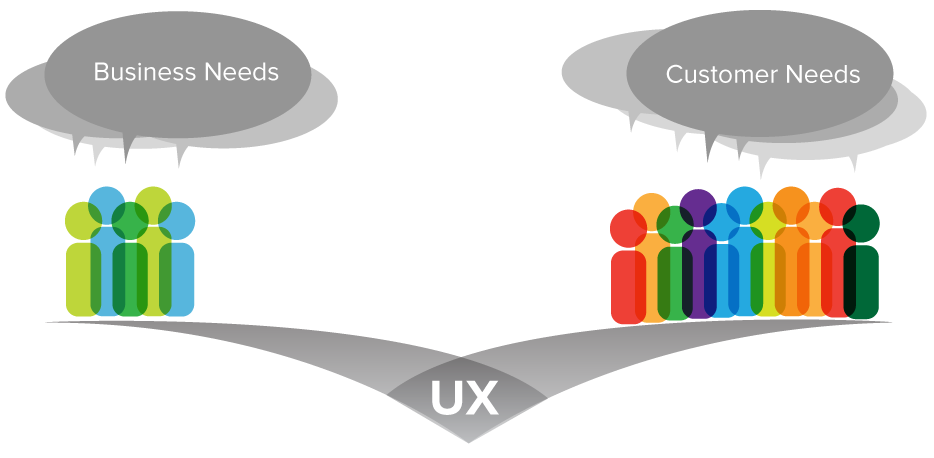Si se está preparando para una entrevista sobre el rol de la analyticsAnalytics refers to the process of collecting, Measure and analyze data to gain valuable insights that facilitate decision-making. In various fields, like business, Health and sport, Analytics Can Identify Patterns and Trends, Optimize processes and improve results. The use of advanced tools and statistical techniques is essential to transform data into applicable and strategic knowledge...., you should do your groundwork to get a basic understanding of the domain. What's more, you must know what the role of analytics is to do smarter business in this domain. But such information is not available in public or in job descriptions.. Most of your round of interviews will be evaluating your ability to analyze a problem in your domain.. If you know the domain beforehand, it will be a jackpot. In this article, I will introduce you to some roles that analytics plays in the ecommerce industry.
Let's talk about the industry first!
E-commerce is a very dynamically evolving industry and this is mainly due to its ever-changing underlying technology. Companies like Amazon, E-bay are capable of building predictive algorithms that run in real time in a big data environment.
I just said 3 important words, that when combined they offer something unmatched and uniquely executed by the ecommerce industry:
- First, e-commerce actors have evolved significantly in their decision-making over time. In the first days, a simple basket analysis was used to make recommendations, today we have client-specific predictive algorithms running.
- Secondly, recommender systems and other technologies that used to take days to run now run in seconds, which makes them even more effective.
- In third place, now everything has moved to a big data environment. We no longer see data in tabular format stored in CSV formats. To shake up millions of activities of billions of customers, we need process parallelization. The eCommerce industry does everything smoothly and the customer doesn't even notice.
Role of analytics in e-commerce
If you have worked in the financial industry, you probably know that analytics play a crucial role in risk and marketing strategy. But nevertheless, the e-commerce industry goes beyond these two pillars. The main job of the ecommerce industry is to make the user experience on your website enjoyable. Other than that, they are simply a platform between sellers and buyers. With such a focus on user experience, analytics itself becomes a product rather than just a business enabler. For instance, the recommendation engines you see in the Amazon sidebar is a classic product. Now, you can appreciate the much broader role of analytics in the ecommerce industry. In the next section, we'll talk more about broad features where analytics is actively used.
Analytics Supported Features in the Ecommerce Industry
This list is not exhaustive., but will fill broad roles in the ecommerce industry.
1. Supply chain management : This includes managing product data directly from the warehouse to the customer.. Ecommerce industries use analytics extensively to manage inventory. What's more, an important part of the work consists of optimizing the transport and the price of the delivery.
2. Detection of merchant fraud / customers : I recently read a post on Facebook saying that someone found a program in the delivery box when they ordered a MAC for INR 90,000. This is what is known as fraud. Even if the e-commerce company has nothing to do with this fraud, it is she who pays for him. But nevertheless, fraud doesn't always come from the business side. Although it is rare, customers also make false claims on scams. Initially, all these scams were handled manually, but over time e-commerce is moving towards the development of a predictive algorithm to detect fraud and avoid it if possible.
3. Trader Analysis : Merchants form the core of the ecommerce industry. If the merchant grows, e-commerce provider also grows. Therefore, e-commerce players conduct comprehensive analysis for merchants to enter new markets or set the right price for their products. For instance, Amazon may recommend a Cricket Bat supplier to keep the hockey sticks due to increasing demand in your area.. Such decisions would have been much more expensive for the provider if they had not partnered with the ecommerce players..
4. Recommendation systems : As soon as I hear the recommendation engines, imagine YouTube. The recommendation systems in the e-commerce industry are not much different than those of YouTube. These engines serve as a model for the customer to navigate the store in this virtual environment. Recommendation engines have been the biggest contribution of analytics to technology.
Credit: TIME Magazine
5. Analysis of specific products : These teams generally work on specific details of the product., for instance: indexThe "Index" It is a fundamental tool in books and documents, which allows you to quickly locate the desired information. Generally, it is presented at the beginning of a work and organizes the contents in a hierarchical manner, including chapters and sections. Its correct preparation facilitates navigation and improves the understanding of the material, making it an essential resource for both students and professionals in various areas.... de satisfacción de los clientes para un producto, sales forecast for a product, etc. Your work cuts across verticals and is specific to a single product family or product.
6. Online marketing analysis : Since e-commerce provides you with a virtual environment to buy things, must market widely in the virtual environment. The online marketing team usually works on bidding for ads on Google or other websites. They analyze the funnel of new leads and maximize the likelihood that a customer will click on an ad.
7. User experience analysis : This is probably the biggest analytics task in the ecommerce industry. It's all about focusing on the customer due to the ease of switching from Amazon to Flipkart. This team works primarily on creating the correct website architecture. This will include how the product is searched across the entire portfolio, what decides the sort order of products for a particular search, what is the best landing page of a customer that comes from Facebook, etc. They also test what type of design is best for what type of clients. .
Image source: Elliance
This list is not exhaustive., as I can imagine other areas where analytics can play a role. But nevertheless, this list of 7 roles covers most analytical resources in the ecommerce industry.
Final notes
I hope this article has given you an insight into how the ecommerce industry leverages analytics to make the customer experience enjoyable.. I will encourage people working in this domain to add to this article and comment on the identified roles. What's more, In the next few articles I will cover a few more industries to provide a more holistic view of how analytics is shaping different industries..
Did you enjoy reading this article? Do you think we missed any role in the ecommerce industry?? Are you inspired by any of the roles mentioned above?














